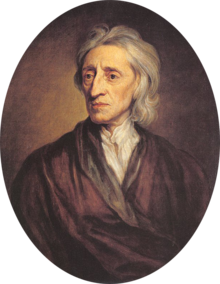|
home | what's new | other sites | contact | about |
||
|
Word Gems exploring self-realization, sacred personhood, and full humanity
Raw sensory data, most people believe,
return to the main-page article on "Clear Thinking"
Immanuel Kant 1724 - 1804
Immanuel Kant, in many or most university philosophy departments, is considered the greatest philosopher of history - greater even than the famous lights of ancient Greece. Further, you will find statements by notable thinkers asserting that no one might consider oneself an educated person unless one has studied Kant. Why all the lavish praise for the German professor? Kant's achievements are most formidable and one could spend many years weighing and considering; however, for our purposes at hand, I will speak to one small aspect.
In previous articles in this series, we've discussed the raw sensory data which, most people believe, informs and shapes the mind -- or does the mind shape the data? The frail and short-of-stature professor - so untraveled, it is said, that he never ventured more than 50 miles from Konigsberg - was the first to understand that concepts of time and space are not part of the 3-D world! Already we are in deep trouble here, plunged into bewilderment with such statement. In our post-Einsteinian world, it is common and fashionable to read of pop-science statements such as, "time and space are illusions" or "time and distance are relative." I daresay that few understand what these assertions mean. Stars are part of the 3-D universe; so are planets, oak trees, eagles, and snapfish. All these are elements of the universe. But time and space are not just two more elements of the universe. But, if not, then what? Kant, as a forerunner of Einstein - and other great German scientists - perceived that time and space, in fact, are illusions and structural concepts that the mind itself imposes on the 3-D world. Einstein would refine Kant's initial burst of insight as "the space-time continuum."
John Locke and the British Empiricists
Dr. John Locke 1632 - 1704
John Locke's work is very extensive, much of it exceedingly brilliant and inspirational to the American Founding Fathers. Some of Locke's writings on liberty and the dignity of Man, it might be seen, strongly influenced Thomas Jefferson and the writing of the Declaration. Locke, a medical doctor, also wrote on theories of mind and how ideas are formed. He did not invent the concept of tabula rasa ("blank slate") but made it famous. Locke theorized that the ideas of mind were the product of experience - incoming raw sensory data. This emphasis on experience led to a labeling of his theory as empiricism (a Greek word for "experience" or "observation"). The latter 1600s was a time dominated by the massive and astounding scientific discoveries of Isaac Newton. His work was deemed to be so important that many believed he had spoken the final word on science and that nothing more of consequence could be added. Newton's theory of gravity - of matter coalescing and gathering round and drawing to itself - was adopted, in principle, by John Locke for his understanding of how the mind works. He envisioned a kind of mental gravity directing the incoming raw sensory data, coalescing around, and becoming, concepts and ideas. The theory was beautiful and elegant - quite Newtonian; as time went on, however, it would become evident that little of it was true. Locke's ideas would not survive the onslaught of The Critique Of Pure Reason (1781) by a frail professor across the Channel in Konigsberg.
knowledge arises from experience but is not grounded in experience Kant was the first to see - astoundingly profound! - that it is not the incoming raw sensory data that shapes the mind; instead, the mind itself imposes structure on the data! - indeed, on perceptions of reality itself! These imposed mental structures Kant referred to as "categories" and "intuitions." In his "first critique" Kant stated (paraphrased): The British Empiricists were correct, in that, knowledge does arise from experience; however, it is a mistake to assume that just because knowledge arises from experience, that it is grounded in experience. Our purpose here is to gain better perspective of clear thinking. The just-mentioned insightful statement by Kant represents a mistake, in principle, that virtually everyone makes every day, all the time: We tend to believe that our "knowledge" - what we deem to be real and true - arises solely from data received by the five senses. We think we're handling everything objectively, seeing things as they are, as it comes in, processing everything with an even hand. Kant says this is not true. In other words, we think we're thinking clearly, when, in fact, we're being led to conclusions, all the time, by pre-imposed structures upon the data, courtesy of our own minds. Our "knowledge" arises not just from "experience" but, more fundamentally, is "grounded in," is shaped by, something far more elemental than the blizzard of sensory data blasting us every moment. Restated: the mind itself imposes structure on our perceptions of "reality." These are Kant's form-imposing "categories" and "intuitions" -which are reminiscent of Bruce Lee's Eastern-wisdom based analogy of "water" taking the shape of a container. The questions we need to ask are: How can I become aware of the "categories" that are leading me around, deceiving me, bending my perception of what's real? How can I find out what's true if the mind itself makes me a prisoner of its canned interpretations? How do I get out of that box? - which are the illusions of my own mind?
|
||
|
|

